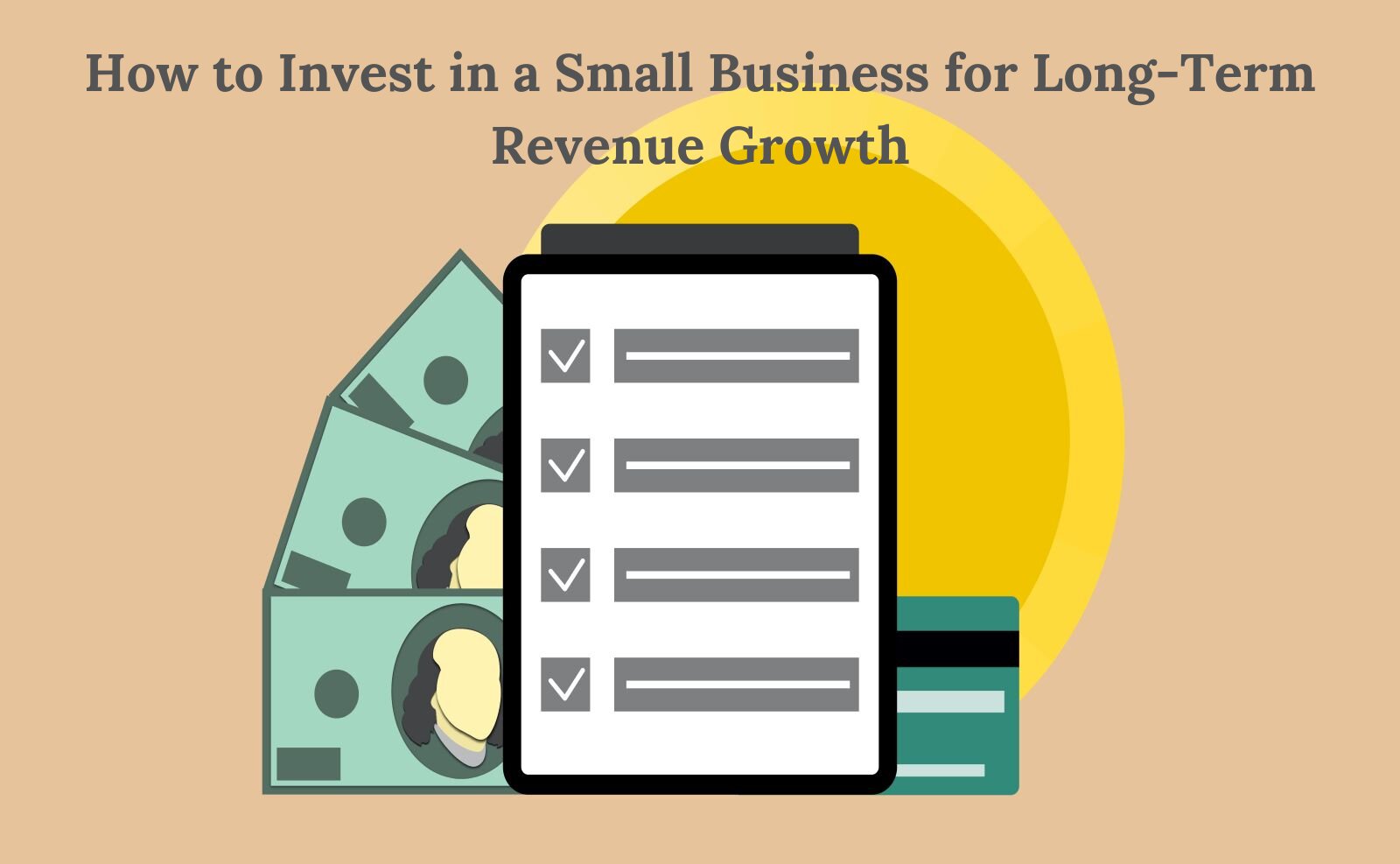Small business management is challenging. To make your business profitable, you must put in time and work. You may not have much money when you start, so you must learn how to save and manage your money. In addition, you ought to educate yourself on investment. Running a business requires investing because it allows you to expand your enterprise.
Growth is critical to a small business’s long-term sustainability. It aids in the acquisition of assets, the attraction of new personnel, and the funding of investments. It also influences corporate performance and profitability. As a result, investing in a small business can yield significant returns. However, if you want to create long-term growth potential in your investment portfolio, growing and nurturing smaller companies should be one of the top priorities in your strategy.
Understanding the various business models and how they work will help you decide better where to invest your money. You and your company can also take advantage of some small business funding experts passionate about helping you succeed. They can help you grow your small business by providing you with their assistance.
Let’s take a closer look at the different types of business investments – what each entails, and how you can start building wealth and growing revenues today!
An overview of debt and equity investments in businesses
The same basic rules apply whether a business is in its early stages or a large multinational corporation. In addition, one must acquire a debt or equity position to invest in a firm.
While both forms of investments can provide attractive returns, they have significant differences that should be carefully studied before investing. You can generate a profit from interest, dividends, or appreciation by putting your money into a firm.

Debt Financing: If you lend money to a company so that they can buy products, you will eventually be repaid with interest. This is referred to as debt finance.
Equity financing: In comparison, if you acquire shares, you will gain access to a piece of the firm’s income over time, known as equities financing. Technically, shareholders of a company own a portion of the company (based on the percentage of the share) and are thus entitled to an equal share of the company’s profits and dividends. Moreover, as the company grows, the value of your shares will rise over time.
A step-by-step guide to investing in small businesses
If you want to start a new business venture or expand an existing one, consider many factors before making investment decisions. Before you invest, comprehend the risks involved and determine how much money you’re willing to put into your company or yourself.
Deals from sources
Finding companies seeking investments is best if you want to invest in small businesses. However, remember that not all companies seek investors; they may already be fully extended and unable or unwilling to make any further loan payments.
Get to know the company’s principles
After you’ve found a business potential, you should engage with the company’s management team. This is a perfect moment to learn about their goals for their company and how they plan to use the money or capital investment.
Furthermore, this is an excellent opportunity to learn about potential partners with whom you could be interested in investing. Moreover, they are your possible partners, so be sure they are the type of people you want to work alongside.
Conduct a thorough investigation
The following stage examines your new business and its financial assumptions when launching a new firm. Reviewing the books, checking outstanding loans, and analyzing market research for the product or service you’re giving are all examples of what you might do. You should also conduct a background check on the managers or owners of your new business.
Terms should be negotiated
After thoroughly evaluating the company, writing an offering document or letter of intent is required. A formal contract stating the terms of your investment may also be necessary. Once the broad strokes have been agreed upon, add specifics like equity participation, management fees, and liquidation preferences.
Finalize the deal
After you’ve reached an agreement with the company’s owners, you’ll need to close on the deal to finalize your investment. This is when the contracts and paperwork get signed, and money changes hands. You’ll receive company ownership shares and a signed document outlining repayment options.
How to Invest in a Small Business: Risks to Consider
Putting money into small businesses doesn’t always pay off. Here are a few causes for caution.
Challenges within the company
The capacity of the business to resume operations could be significantly impacted by a reputational problem, fraud, business interruption, and security risk. A similar occurrence might result in the company losing money and resources, which would lower the rate of return.
Liquidity of investments
When you give or invest money in a firm, the debt is usually locked up for years. So make sure you have enough money to cover any debts or loans you accrue.
Growth-oriented small business investment strategies
No matter where your company is at the moment, it is best to structure and plan for expansion. Planning might be beneficial for growing a small business in the long run.
Some people start their businesses because they love their work and enjoy working independently. Others want to supplement their income or save money for retirement.
Whatever the case, if you’re serious about starting a small business, you’ll likely find yourself facing challenges along the way, such as finding startup funding, hiring employees, managing inventory, and dealing with taxes and legal issues.
But once those hurdles are overcome, you may find that running your own business provides many benefits that come with little effort.
This is crucial to converting your business aspirations into a strong investing strategy. You can share in the rewards of a company’s success without investing the significant time and effort required to run it when you invest in an entrepreneurial enterprise through debt or equity.
Risks are common for small firms, and no one company can guarantee continuously strong sales or profitability. However, the market favors investors who spread out their holdings among several tiny, rapidly expanding businesses.
The Final Thoughts
When considering beginning a small business startup, you must determine what kind of investment you can make. You must also decide whether or not you have the financial capacity to assume any risks. Having read this, you can begin your business immediately!
Finding a small business loan lender can be intimidating. Exploring your options is essential before signing up with any particular lender. It would be best if you also took the time to compare various rates offered by multiple financiers. The last thing you should do is to ensure that you understand how each financier works.








